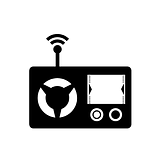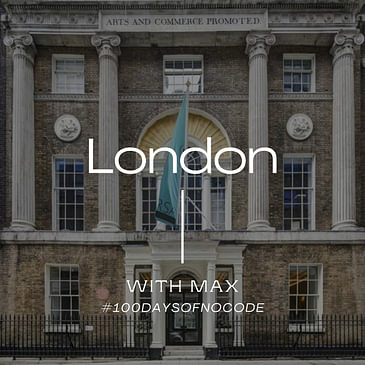Please share this episode around and get in touch with me on Twitter : @alexkovax
🗒 Brief summary
In this episode, we chat with Max, the founder of the 100 Days of No Code project. Max shares their journey from failed startup to discovering the world of no-code. We discuss the growth of the project, the importance of project-based learning, and the future of no-code with AI integration. Max also talks about their social media presence and how they document their building process on Twitter and LinkedIn.
📚 Resources
- Max on Twitter: https://twitter.com/HainingMax
- #100daysofnocode on Twitter: https://twitter.com/search?q=%23100DaysOfNoCode
- 100days account : https://twitter.com/100daysnocode
- 100 days of no-code website: https://www.100daysofnocode.com/
- Max on Linkedin : https://www.linkedin.com/in/maxhaining/
📖 Chapters
0:00:00 Introduction and Setting at RSA House in London
0:04:53 The Need for Technical Knowledge
0:07:18 Exploring the Idea of No-Code
0:10:08 The Birth of 100 Days of Code
0:14:02 The Need for Structure and Community
0:19:18 Building a community and leveraging growth
0:22:04 From Hashtag to Community: The Evolution of 100 Days of No Code
0:24:02 Adding Structure: Introducing the Daily Curriculum Challenge
0:25:21 Starting with Lean Education Approach
0:27:25 Balancing Motivation and Complexity in Project Selection
0:29:36 No-Code: Beyond Code - Design, Marketing, Product Management
0:32:22 AI as the Next Level of NoCode Development
0:34:21 AI Integration in Existing Tools: Zapier, Bardeen, Framer
0:36:19 The Exciting Possibilities of AI Integration in NoCode Tools
0:38:14 Teaching transferable skills with five essential tools
0:41:12 Introducing AI Skills Training for Individuals and Companies
0:42:10 Building a community within their own circle
0:43:04 Plans for In-Person Meetups and Future Expansion
📃 Long Summary
In this podcast episode, I interview Max, the founder of the 100 Days of No Code project. Conducted at the RSA house in London, the discussion delves into Max's journey into the no-code space. Max initially wanted to learn coding but was drawn to the no-code movement after reading an article by Ryan Hoover. Inspired by the "100 Days of Code" concept, Max started "100 Days of No Code" and chronicled the journey on Twitter.
The conversation touches on the benefits of project-based learning and the importance of community platforms like Twitter for sharing progress and mutual support. The project has since evolved from a hashtag to a community and now an education company. They have a paid Slack community and are offering structured learning experiences through curriculum and boot camps.
The episode also explores the future convergence of AI and no-code, mentioning tools like Zapier, Bardeen, and Framer which are integrating AI into their workflows. We both emphasize being tool-agnostic in the no-code field and talk about upcoming educational offerings, including a no-code times AI boot camp.
Regarding social media, Max is active on Twitter and LinkedIn, documenting their company's journey, while I mainly focuses on newsletters and YouTube tutorials.

